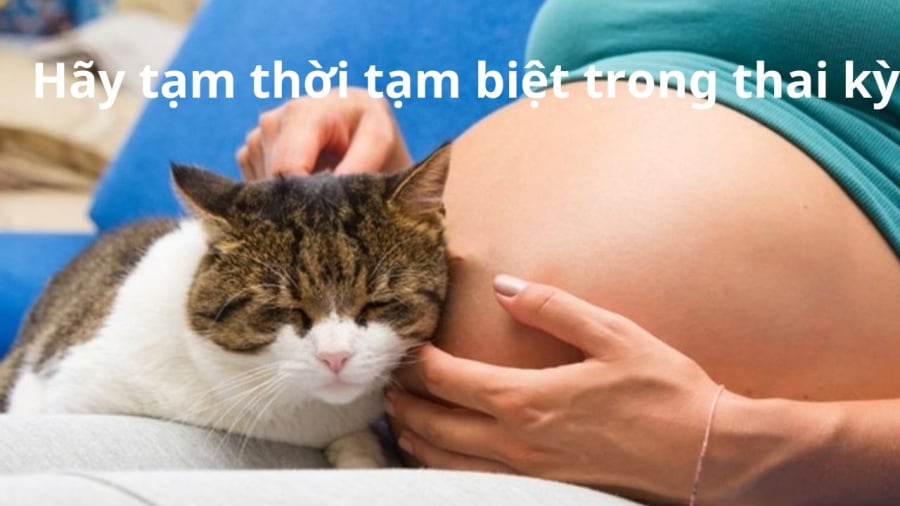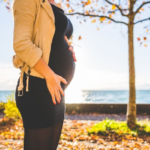Dogs and cats are pets in many families. However, if you are pregnant, it is advisable to limit your contact with them and their waste. If you intend to keep dogs and cats during pregnancy, it is best to wait until later.
The reason is that dogs and cats are the main hosts of a dangerous parasite called Toxoplasma Gondii, which is a common parasite worldwide. This parasite exists in food, soil, water… And especially, they transmit the disease through hosts such as dogs, birds, especially cats.
When Toxoplasma invades the body for about 15 days, it causes symptoms similar to flu, increases white blood cells, makes pregnant women feel feverish, sore throat, and swollen lymph nodes. For pregnant women, who have sensitive bodies, they may have more severe symptoms.

Dangers to the fetus
The Toxoplasma Gondii parasite can be transmitted to the baby up to 30%, even if the mother does not have any symptoms during the infection. Normally, the infection rate from mother to fetus is 15% in the first 3 months, 30% in the middle 3 months and 60% in the last 3 months. Infection with this parasite in the first 3 months of pregnancy is very dangerous for the baby. If the fetus is congenitally infected in the womb, it may have symptoms of organ damage, brain, and eye such as: seizures, enlarged liver and spleen, yellow skin and eyes, eye infections…
Some children may appear normal at birth, but develop symptoms as adolescents, which can lead to hearing loss, delayed mental development, and susceptibility to eye infections…
The Toxoplasma parasite is a single-cell parasite, commonly found in warm-blooded animals such as birds and mammals. Among them, cats are the main hosts because the Toxoplasma Gondii parasite exists in large quantities in the cat’s intestines and is often spread to the environment through their waste.

Infection with cat hair, cat fleas
In addition to Toxoplasma infection, pregnant women who are in close contact with dogs and cats may be at risk of allergy, cat hair infection, or cat flea infection, which is not good for the pregnancy process. Especially if the family has traditional dog and cat breeds that are not vaccinated, it is very dangerous.
When playing with dogs and cats, you also don’t know the risk of rabies infection.
Prevention for pregnant women
If the family already has dogs and cats, you should limit contact, let other members of the family take care of the pets during this period. Never let dogs and cats sleep together, do not hug or kiss them.
Dogs and cats should be properly cleaned and vaccinated.
When encountering dogs and cats on the street, avoid contact as you do not know their vaccination history.
Avoid eating cat meat during pregnancy.
Foods in the family need to be cleaned and soaked before eating raw.
Although there are not many cases of pregnancy-related dangers from raising dogs and cats, it is still better to be cautious.






































